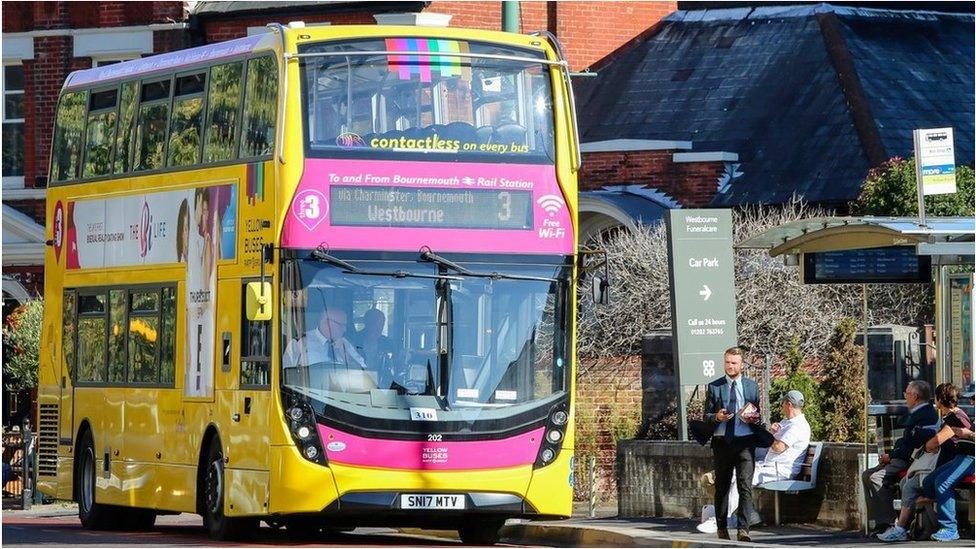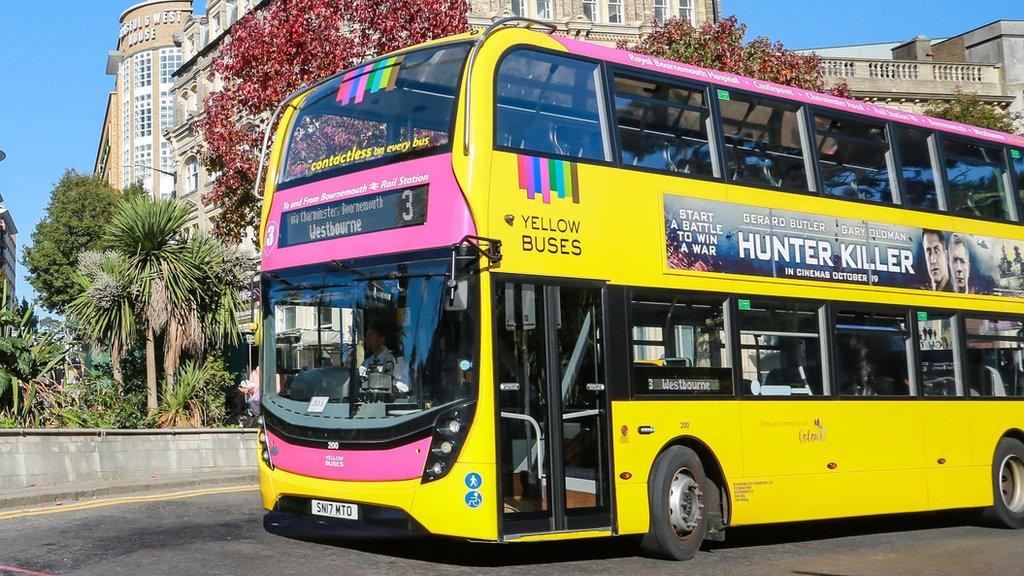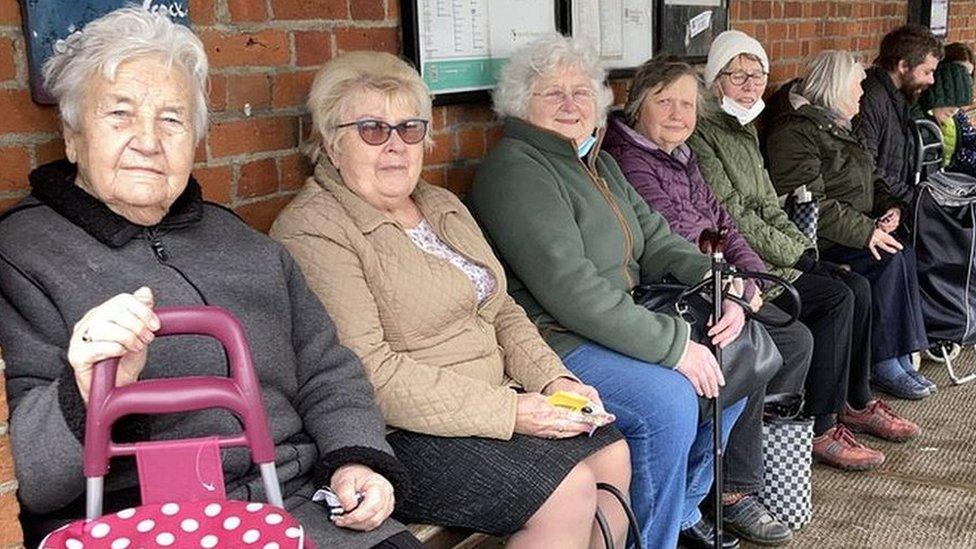Bournemouth's Yellow Buses collapses after failing to find buyer
- Published

Yellow Buses will stop running after Thursday evening's services
A 120-year-old bus firm with about 300 staff will stop running later after failing to find a buyer.
Bournemouth Transport Ltd, which serves Bournemouth, Christchurch and Poole under the name Yellow Buses went into administration last week.
The firm blamed the pandemic and fuel price rises for its problems.
Yellow Buses will stop running on Thursday evening - Morebus will take over its routes and will accept Yellow Buses tickets for the next 10 days.
A mass recruitment for qualified bus drivers is also set to be held by MoreBus on Friday.
Yellow Buses had celebrated its 120th anniversary three weeks ago at a bus rally at Kings Park.
Administrators for the company, Milsted Langdon, said an agreement was expected to be signed on Friday for the coach side of the business, saving about 50 jobs.
In a statement, it said: "It is hugely disappointing that we weren't able to secure the remainder of the business and the jobs attached to it."

Analysis
By Paul Clifton, BBC South transport correspondent
Bournemouth Corporation started out running trams, later it ran trolleybuses and, from the 1960s, buses.
It was owned by the council, then by French companies. Finally, it was bought by three of its managers just three years ago.
As a small local business, Yellow Buses could not cope with the toxic combination of fewer passengers in the pandemic and this year's huge increase in fuel costs.
On top of that, the government's Covid financial support came to an end.
For passengers, there will be a bumpy ride for a few days while neighbouring MoreBus moves in and takes over the core routes. It hands the Go Ahead subsidiary with close to a local monopoly.
The long-term prospects are very good. But the recent storm needed a bigger company with deeper pockets.
A famous name on the south coast, 120 years old, could well now disappear, never to be seen again.

Follow BBC South on Facebook, external, Twitter, external, or Instagram, external. Send your story ideas to south.newsonline@bbc.co.uk, external.
Related topics
- Published29 July 2022

- Published17 February 2022

- Published2 October 2021

- Published24 August 2020
